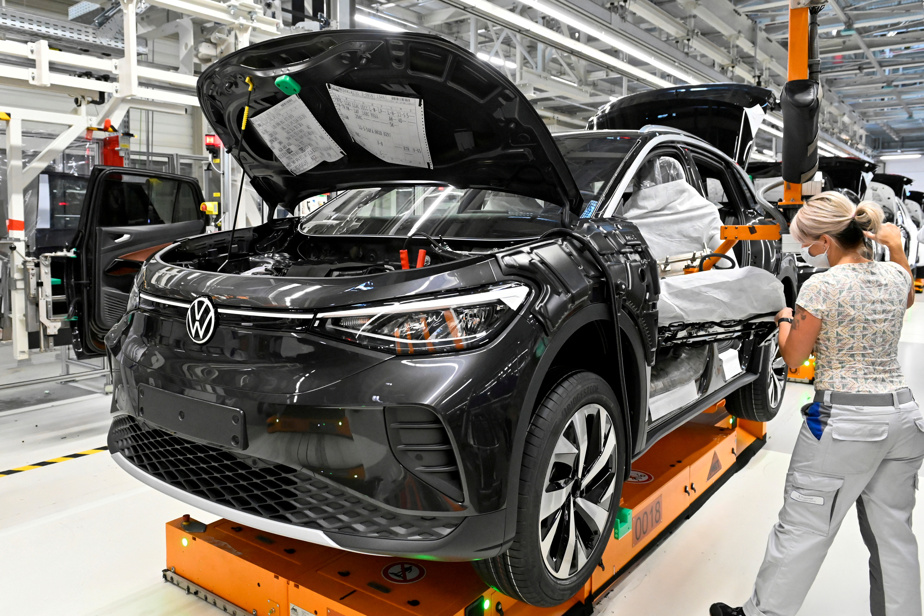Without saying it and perhaps even without knowing it, the author proposes a command economy, at least for the automotive industry. Weight, size, number, distribution, energy capacity, advertising, etc. And yet, the sector is only responding to the desires of consumers who, in turn, are flocking to SUVs in the overwhelming majority. Therein lies the problem and the solution. act on the consumer. We imagine a system of bonuses and penalties on purchase and, subsequently, on registration or annual car insurance (the famous mileage tax).
It’s really worrying to see manufacturers eliminating small vehicles from their catalogs, and entry-level models. They prioritize increasingly expensive alternatives for the consumer. I also wonder about the current distribution network for selling cars, where prices vary so much from dealer to dealer. I feel like some dealerships are trying to pass so many hidden charges on to the consumer that they don’t know if they’re being ripped off. The manufacturers do not seem to want to do anything to resolve the situation.
I totally agree with what Mr. Viau said. I reserved a Bolt because it was the model that suited my needs. I don’t want an SUV. I absolutely do not need a large, polluting and energy-guzzling vehicle. The choices are dwindling. How sad to see how we continue to consume: Mr. Viau talks about the government, but we consumers have a role to play.
Not complicated: governments should impose standards, models (favor small and medium models), heavily tax SUVs so that the energy transition does not turn into a nightmare!
The government should tax more (on purchase) large electric cars, in addition to omitting provincial and federal subsidies. But Quebec is such a small market that manufacturers can do without it.
I totally agree with what the author said. The fleet is overweight. When resources are limited and you want to reduce the environmental footprint, you have to minimize the use of resources and energy. Consider the post-war automobile fleet in Europe and Japan, where the majority of resources were directed to rebuilding infrastructure and housing. Automakers had to limit the size of vehicles. Today, if we are serious, it would be the medicine that we should apply.
Having done some research with the goal of switching cars, I was faced with a market that favors SUVs. Having owned a Volkswagen Golf for over 20 years, I can no longer find an equivalent model at an affordable price. My solution: keep my current Golf for as long as possible, at least until the market expands the range of cars available. Keeping my car in good working order is my way of being green: one less car to build.
I completely agree, there is no environmental gain in making electric vehicles bigger and bigger, with their huge batteries. The future of the planet comes before profits.
He’s right, but I’m still hopeful that the industry will have to adapt, maybe faster than you think. Indeed, if we look at what is happening in Europe, there is the Chinese company BYD which will offer the European market the Seagull which will have a starting price around 10,000 euros. There is even talk of a sodium battery rather than lithium in the near future. Long live the competition!
It’s high time for provincial and federal governments around the world to impose the right way on automakers who clearly do what they want in the absence of clear environmental guidelines.
The automobile industry is on the wrong track and it is assisted in this by the inaction of the State in the file of road vehicles, electric or not. The state is only too happy to see so much money piling up in its coffers due to the many taxes it happily collects. As for motorists, they find their big minounes of the 1960s and 1970s, version 2.0. The laissez-faire must end.
I absolutely agree with Marc-André Viau. This discourse must make its way to legislators, because SUV and truck manufacturers do not give themselves the mandate to educate the population to make the right social choices. The goal of personal vehicle electrification should not be to take up more space on the road by exploiting more mining and electrical resources (by moving more mass because of the weight of the batteries) for one person, but rather optimize our transport and minimize our overall impact on the environment. Public transit does not meet all needs, but the road is a collective space and it is taken over by people who take it for granted, supported by builders who take it upon themselves to repeat it to us at every moment in the media world. If the car meets a certain need, let’s respect the collective space and buy it small while waiting for a larger REM.

